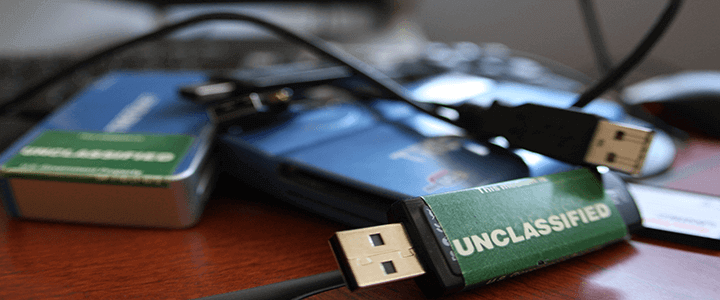We all work in a sensitive position, otherwise we wouldn’t need a clearance. We all see questionable activities at work from time to time. But what if the issue goes to ethics, or crime, or even espionage? Perhaps even worse, how do you tell your boss he’s out of line? We all have to face such dilemmas in our career, so let’s see what works.
In the 1980’s the greatest Soviet spy of the 20th Century, the Englishman Kim Philby, was taped as he gave a lecture to East German spies in training. The taped lecture only came to light when the Cold War was over, during those heady days when vast amounts of Staatsicherheit and KGB espionage material became available to the world.
Philby was a Cambridge University graduate whose father was St. John Philby, a Middle Eastern expert for the British government. Philby entered the secret world of MI6 (British intelligence) during the Second World War. After an exceptional war time career, he moved up the ladder until he was head of British Counter-Soviet intelligence. He became Britain’s main liaison officer to the new American CIA. After years of official doubts about his loyalty, he finally showed his hand and bolted in the 1960’s from his post in Beirut, Lebanon, to the Soviet Union. He had been a spy for the Soviets all along.
What did he steal? “Every evening I left the office with a big briefcase full of reports which I had written myself, full of files taken out of the actual documents, out of the actual archives. I was to hand them to my Soviet contact in the evening. The next morning I would get the file back, the contents having been photographed, and take them back early in the morning and put the files back in their place.”
No one checked him. As he said,“Because I had been born into the British governing class, because I knew a lot of people of an influential standing, I knew that they would never get too tough with me.”
Do we do the same? Some may argue no, we have no ruling class. But think again. Is there a military rank, a civilian senior grade, or company executive you never, ever, challenge? Consider: one senior government civilian executive didn’t appreciate ‘being bothered’ by others as he worked late into the night. Only when someone noticed millions of dollars lost was his scheme uncovered. Or again: In the so-called Fat Leonard scandal, over two dozen Senior Naval Officials have been indicted, and in almost half the cases guilty pleas to fraud and corruption have resulted. In the past two months, senior officials have been arrested for spying for China.
What can a cleared employee do?
It’s simple: everybody has to follow the same rules. No one is above them, excused from them, or can avoid them without consequences. What does this mean in practice? A senior officer routinely left his safe unlocked as he went to the restroom. No one challenged him on this, even when it was clear that no one was tasked to watch the safe in his absence. In fact the container was in a separate area anyone could enter and not be seen. Appeals, reminders, and verbal comments didn’t work. Only when he read about it in a letter of reprimand did it stop.
Random checks mean random. Guards must know that even the ‘busy executive’ or General Officer can be stopped, and their briefcases checked. One facility goes so far as to wand random personnel, and another will have cleared security monitors check any software for content. Best practice is simply don’t let any software leave the building without review and certification. Better still, check everyone leaving the building. Of course, all classified materials must be properly sealed in appropriate containers/envelopes. And what if the boss mentions he had friendly foreigners over for dinner, but didn’t tell security? Report it.
Why did someone like Philby steal what he did? He casually walked the information out the door, every day, for almost 30 years, Why? Because he’d figured out how to cow anyone who challenged him. You’ve seen it yourself. When caught, or challenged, the first thing the senior executive does is protest his innocence, his importance, and demands of his questioner, “Do you know who I am?” He belittles the conscientious guard, demeans the ‘over zealous’ security officer, even cynically ‘agrees’ saying, ‘I know you have a job to do, but so do I and I’ve got no time for this matter right now’. Yes, Philby’s job was to steal secrets for the Soviet Union. He didn’t want to be bothered by a guard doing his duty. He pulled all the tricks a cynical traitor will always pull, and succeeded because others were afraid to confront him, or figured, “After all, he’s one of us.”
Philby summed it up best in his presentation to his communist student spies, “And all I had to do really was keep my nerve. So my advice to you is to tell all your agents that they are never to confess.” Don’t be the clearance holder who doesn’t report when something just doesn’t seem right. Report the incident, no matter who it is.




